Chat with our midwife, book your in clinic or at-home NIPT blood draw with a professional nurse, and get your results in under in as little as 2-5 working days.

Use responsibly. T&Cs & late fees apply at clearpay.co.uk/terms
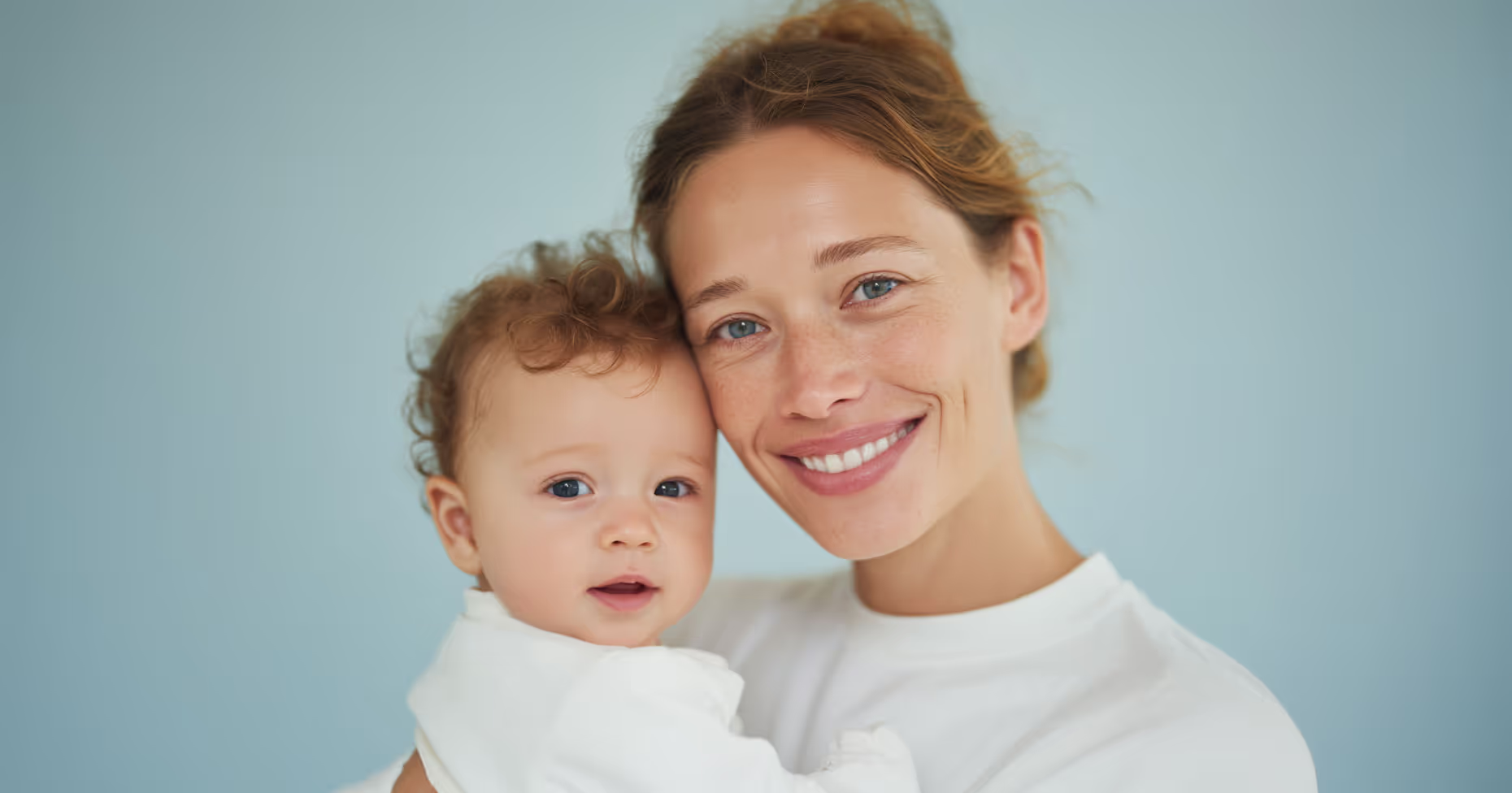

Non-Invasive Prenatal Testing (NIPT) is a simple blood test that can give you clear information about your baby’s risk of the 3 main chromosomal conditions:
Down’s syndrome (Trisomy 21)
Edwards’ syndrome (Trisomy 18)
Patau’s syndrome (Trisomy 13)
It works by analysing small fragments of your baby’s DNA found in your blood. There’s no risk to your pregnancy, and results are usually available within 2-5 working days. We also offer extended NIPT options testing for hundreds of conditions.
Optional fetal sex reveal is available for all tests.







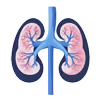
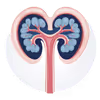
Trusted specialists


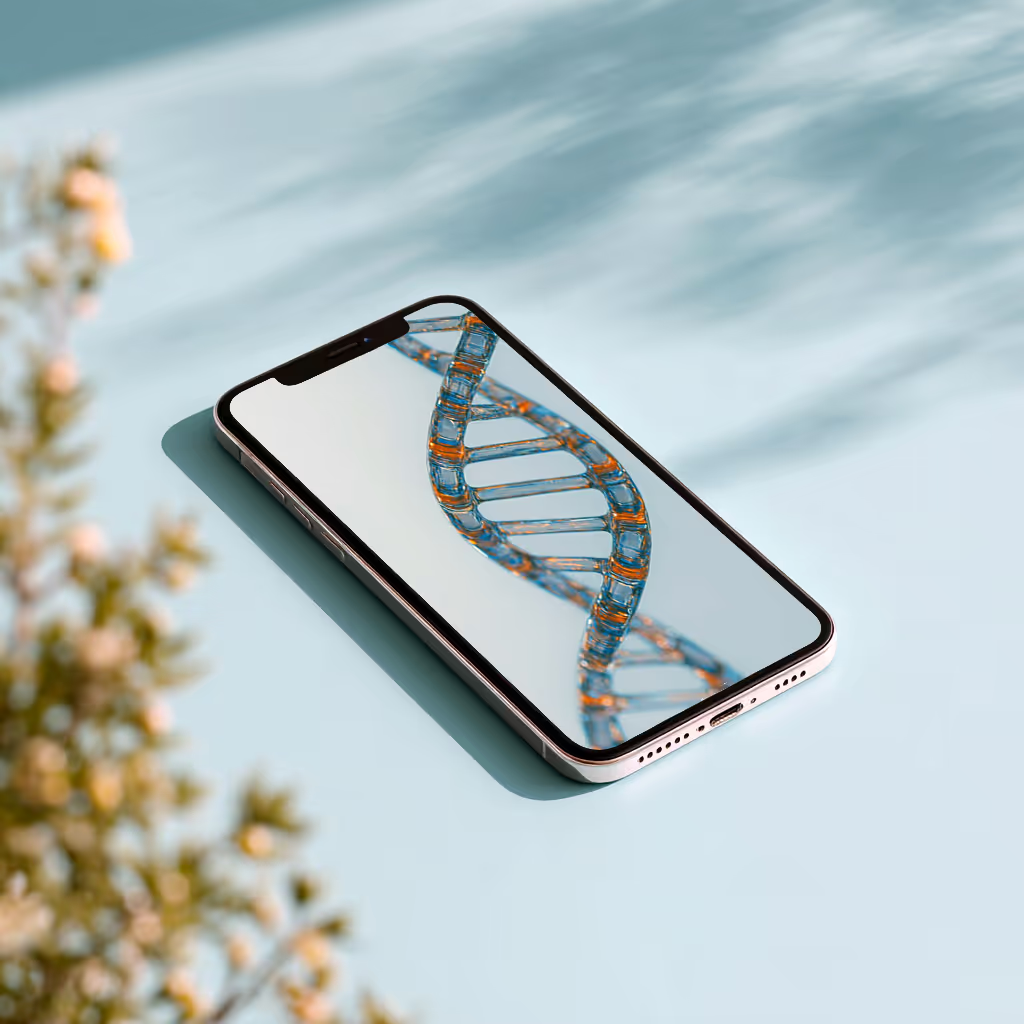
Speak to our specialist midwife, pick
what NIPT test you want

Get your bloods taken at one of
Jeen's ~40 partner clinics

Get your detailed report and
recommendations

A simple, low-cost option with flexible scheduling. For many patients, this is the quickest and most practical way to complete the test.
Book NowNon-Invasive Prenatal Testing (NIPT) offers a safe, early look at your baby’s health using just a small blood sample. It screens for the most common chromosomal conditions such as Down’s syndrome and gives highly accurate results from as early as 10 weeks into pregnancy. With NIPT, you can make informed choices sooner and feel confident in the care you’re receiving throughout your pregnancy.
NIPT offers over 99% sensitivity for Down’s syndrome and significantly reduces false positives compared to traditional screening. That means fewer unnecessary invasive procedures and greater peace of mind.
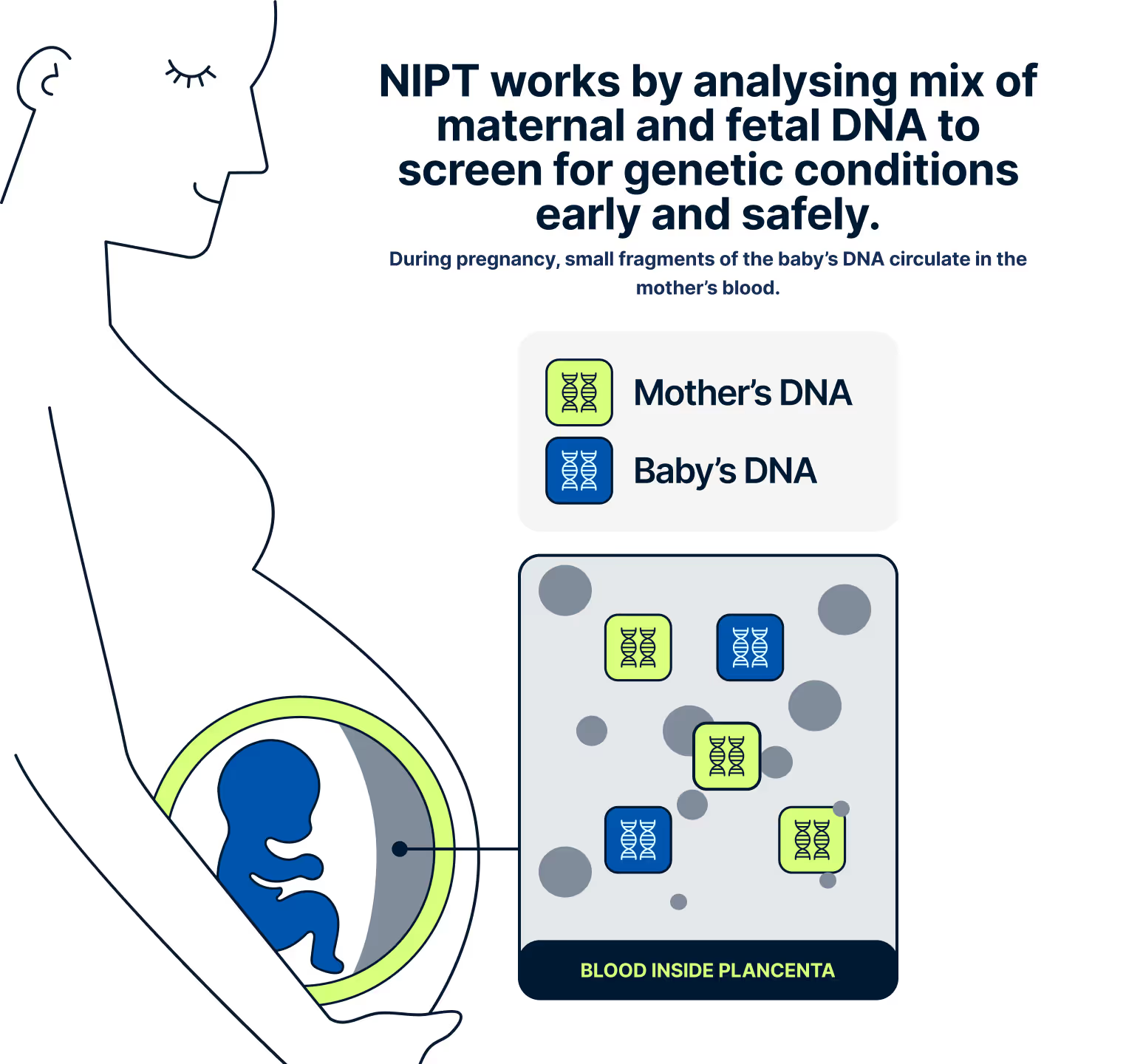
Before your test, our team of obstetricians and fetal medicine specialists will review your pregnancy scan report to make sure NIPT is right for you. This helps us provide results that are as accurate and helpful as possible. You’ll need to upload a pregnancy scan report showing your gestational age, from an NHS provider or a CQC-registered private ultrasound clinic. The scan must have been performed within one week of your blood draw.

Every NIPT with Jeen includes a one-to-one session with a qualified midwife from London Pregnancy Clinic. We’ll explain your options, help you choose the right panel for your needs, and support you in understanding what your results mean for you and your baby. It’s not just a test, it’s expert advice, personalised to your pregnancy.

We work with leading international laboratories, including Fulgent Genetics, Natera, BillionToOne, and Eurofins, to deliver the highest standards in prenatal screening. These labs use advanced next-generation sequencing and cutting-edge technology to ensure accuracy, reliability, and fast turnaround times.

Our team and partners stay on top of the latest clinical guidelines, emerging research, and technological advances in prenatal genetics. That means you benefit from up-to-date, evidence-based advice, delivered by experts who understand the science and support behind every test.
Book a midwife counselling session first. The counselling fee counts towards the cost of your test. If you decide not to go ahead after counselling, you’ll only pay for the counselling. If you proceed, we’ll deduct the counselling fee from your test price.
Transparent. Personalised. No surprises.
Basic NIPT screens for the three most common chromosomal conditions: Down’s syndrome (Trisomy 21), Edwards’ syndrome (Trisomy 18), and Patau’s syndrome (Trisomy 13). Advanced NIPT includes everything in the basic test, but can also check for sex chromosome conditions, some rare genetic deletions (called microdeletions), and can tell you the biological sex of the baby if you choose to know.
At Jeen, our genetic counsellors will help you decide which version is right for you during your consultation.
At the moment, NIPT is only offered through the NHS in certain cases. For example, if you’ve had a high-risk result from a standard screening test. At Jeen, we offer private NIPT testing with flexible options, fast results, and full clinical support, including at-home appointments and expert guidance.
Yes, NIPT can usually identify the baby’s biological sex with high accuracy, but this is completely optional. If you’d like to know, just let your genetic counsellor know during your consultation and if you’d rather not find out, we’ll make sure it’s not included in your report.
We ask you to send us your pregnancy scan so our medical team can confirm that you’re at least 10 weeks pregnant and that the pregnancy appears to be developing as expected. This helps us check that NIPT is suitable for you and that your results will be as accurate as possible.It’s also important to know that NIPT screens for certain genetic conditions only.
It doesn’t look for physical or structural differences, such as heart or organ development issues, which are usually identified later through ultrasound scans. By reviewing a recent scan (performed within one week of your blood draw), our doctors can make sure there are no early concerns before going ahead with your NIPT.
Your results will usually be ready within 2–10 working days from the time your sample arrives at our partner lab. The exact turnaround time depends on which NIPT you’ve chosen and the location of the laboratory. We’ll keep you informed throughout the process and arrange a follow-up consultation to talk you through your results as soon as they’re ready.
Please note that delays can occur during public holidays in both the UK and the US. If your results indicate that follow-up testing is needed for your partner, we’ll act quickly to keep everything moving smoothly. Our priority is to get you the answers you need without unnecessary delays, so you can make confident, informed decisions for your pregnancy.
You can take the NIPT from 10 weeks into your pregnancy. Before booking your test with Jeen, we ask you to send us a recent pregnancy scan, such as a dating or viability scan, so our team of specialists can confirm you’re eligible to proceed.
Yes, NIPT is completely safe for both you and your baby. It’s a non-invasive blood test that only requires a small sample from your arm, and there is no physical contact with the baby. This means there is no risk of miscarriage or harm to the pregnancy, unlike some invasive procedures.
NIPT is over 99% accurate at detecting Down’s syndrome and also highly reliable for Edwards’ and Patau’s syndromes. It is more accurate than standard NHS screening and produces fewer false positive results, which means fewer people are sent for unnecessary follow-up testing.
Yes. At Jeen, we believe everyone choosing NIPT should have the opportunity to speak with a qualified midwife beforehand. This conversation helps you understand what the test can and can’t tell you, and what your results may mean for you and your baby. It’s also a chance to ask questions and feel confident in your decision.
If you would prefer to speak with a genetic counsellor, we can arrange this for an additional £30. Please note that choosing a genetic counsellor will also increase the total cost of your test by £30.
If your result shows a high risk for a condition, we’ll arrange a follow-up session with one of our genetic counsellors to explain exactly what it means. You’ll be given the option to have a diagnostic test, such as amniocentesis or CVS, which can confirm the result. We’ll support you at every step, with clear information and no pressure.
No, NIPT screens for a specific set of genetic conditions, mostly involving extra or missing chromosomes. It won’t detect all birth defects or structural anomalies, such as heart defects or limb differences. That’s why it’s important to still attend all your routine scans and check-ups during pregnancy.
Our team of Expert Specialists is here to help. Whether you're curious about testing, your results, or what’s right for you. We're just a message away.